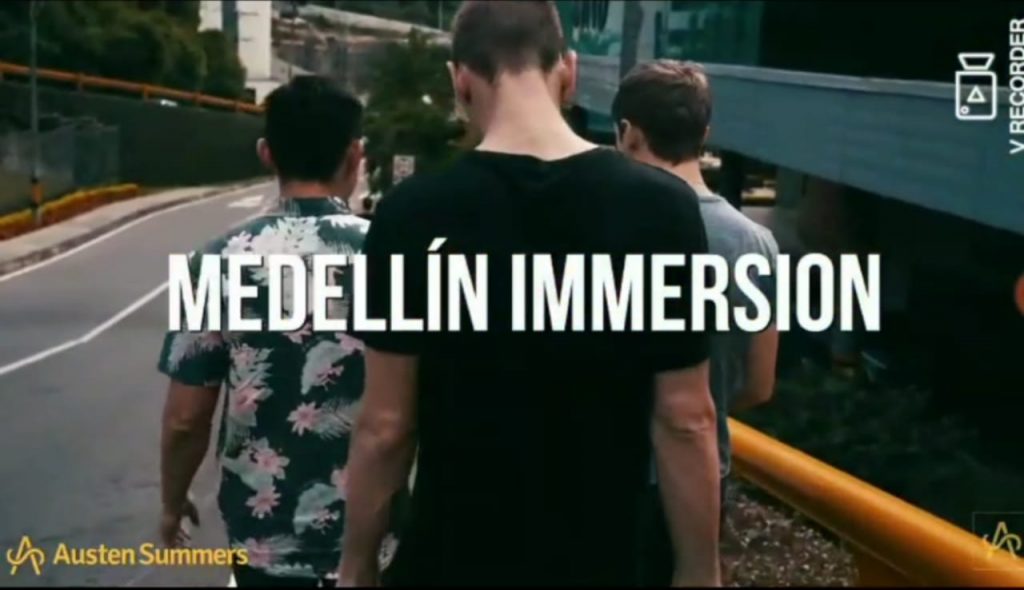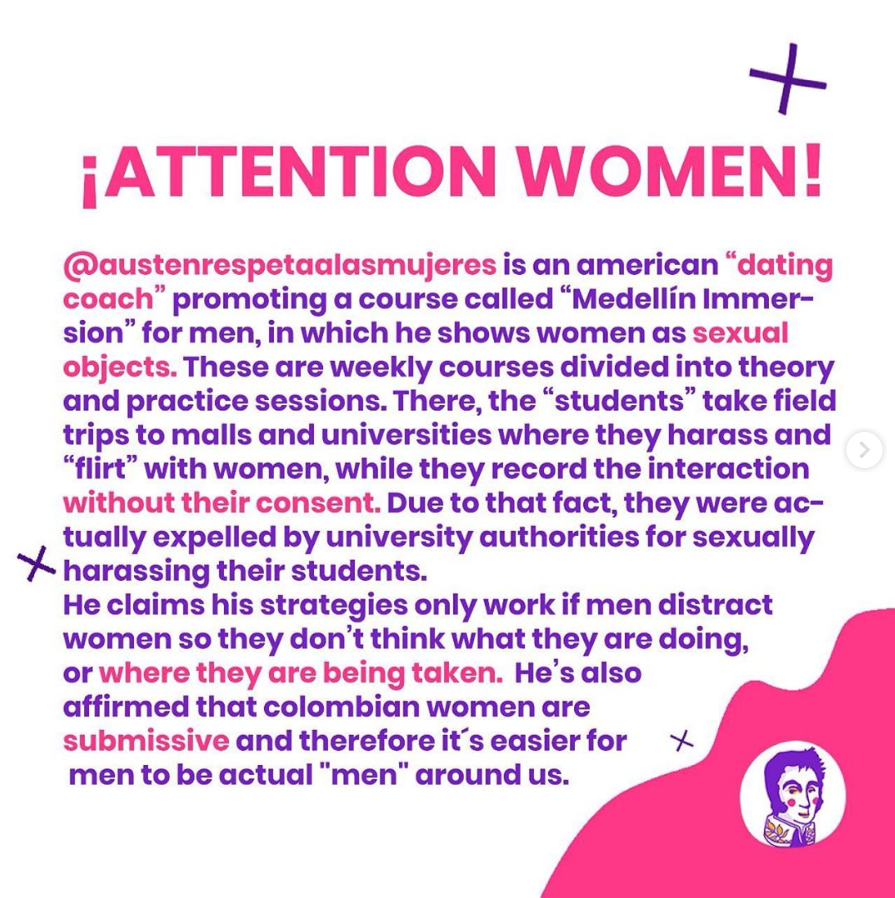
In the last two decades, the city of eternal spring has struggled to change its international image from the most violent city in the world to the most innovative, thanks to its commitment to social inclusion and economic development.
But a subtle aspect has remained in the mindset of the Paisa people: the key elements of the “narco mindset’’ like easy money, strong gender stereotypes and sexual exploitation of women still influence lifestyle and culture in the city. These are aspects that are reproduced internationally through reggaeton music and TV series that fixate on them, but don’t conduct a profound analysis of what they actually mean, and their impact on society.
This begs the question about the actual reason behind the increase of tourism in the city: Is it its innovative change or the remnants of its narco-culture? In the last couple of days, a hint to answer this question has gone viral.
Austen Summers, an American based in Medellín who has proclaimed himself as a “dating coach” has been at the center of controversy for promoting a programme called “Medellín Immersion,” a bootcamp that involved more than 70 hours of live-training sessions and in-field work, where he teaches his students, most of them coming from abroad, different techniques to pick up women in the city.

On his web page he states that there’s a person in charge of recording hidden camera footage of every ‘field trip’. Much of this footage ends up being published in the social media of Austen Summers, without the consent of the women in it, involves Summers and his crew indicating that they were expelled from EAFIT University, presumably because of sexual harassment accusations.
The so-called ‘academy’ has been publicly rejected and has generated much outrage in social media, boosted by the denouncement of local feminist organizations like Bolivar en Falda and WikiGrillas, who received anonymous information reporting that the way Summer´s students were approaching women was in fact, sexual harassment.

One woman reported that she was allegedly approached by Summers and one of his students who started following her in the middle of the night. After she initially rejects the student’s advances, he accuses her of being racist after asking her why she “didn’t like black dick.” He then berates her.
As these organizations started to research on this report, they found out that Summer’s web page and social media were also plagued with plenty of racist and misogynist content, labeling Colombian women as “submissive” and “sweet” who “fuck with passion.” Moreover, he promotes his academy as a way to “have more choice in who you sleep with and date, and get a high-quality girlfriend or multiple fuckbuddies”.
Part of the web page was taken down on July 30..

The Austen Summers “Medellín Immersion” program opens up the debate about tourism in Medellín and the problem of sexual exploitation of women and girls in the city. The values that he teaches and propagate reinforce and echo a view that a relevant part of the world holds about women that live in Medellín.
According to a spokesperson from Bolivar en Falda, one of the leading youth feminist organizations in the city, “Affirming that Colombian women are submissive and docile indicates that they are vulnerable to the sexist and violent techniques that Mr. Summers teaches.” These ideas are not only violent by themselves, but also reinforce the stereotype that women are supposed to obey men without objection.

Moreover, it is impossible to forget that these ideas are being reproduced in a country with high statistics of femicide and sexual exploitation of women and girls. According to the Observatorio de Feminicidos, Colombia had 750 femicides and more than 16,000 cases of sexual violence in 2017.
Bolivar en Falda also states that “the latter is a problem heavily influenced by the sexual tourism industry in Medellín, which cannot be separated from the idea that women are sexual objects, made for the consumption and satisfaction of male desire”.
Due to its violent history, Medellín has never had big waves of foreign visitors compared to other cities in the region. In 2015, 212,000 foreigners visited the city and in 2019 this number has almost surpassed a million. While foreigners are mostly treated with kindness and respect, this reception to visitors will likely change if the paradigm of sexual and drug-related tourism keeps increasing.
This article was co-authored by Sara Mendez Niebles, who studied law at the University Pontifica Bolivariana, where Bolivar En Falda was founded.




